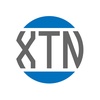The landscape of healthcare is undergoing a transformative change, largely driven by the advent of big data. One of the most significant applications of this technological revolution is in the realm of personalized medicine. This innovative approach tailors medical treatment to the individual characteristics of each patient. By analyzing vast datasets, healthcare providers can now predict more accurately which treatment and prevention strategies will work in specific groups of people. This article delves into the concept of personalized medicine, the role of big data in its advancement, and the implications for future healthcare.
Understanding Personalized Medicine
Personalized medicine, also known as precision medicine, is a medical model that proposes the customization of healthcare - with medical decisions, practices, and products being tailored to the individual patient. This model moves away from the 'one size fits all' approach, acknowledging that what works for one patient may not work for another due to the differences in their genetic makeup, environment, and lifestyle.
Key Components of Personalized Medicine
Genomic Medicine: Involves using genetic information from the patient's genome to guide clinical decision-making.
Pharmacogenomics: Studies how genes affect a person's response to drugs, thereby optimizing drug efficacy and minimizing side effects.
Predictive Diagnostics: Enables the early detection of diseases and the identification of patients at high risk.
Targeted Therapies: Involves the development of therapies targeted at specific molecular changes that are unique to a disease.
The Emergence of Big Data in Healthcare
Big data in healthcare refers to the massive volumes of information created by the digitization of everything from patient records to genetic information. This data comes from numerous sources including electronic health records (EHRs), medical imaging, genomic sequencing, wearables, and more.
Characteristics of Big Data
Volume: The sheer amount of data generated in healthcare is monumental.
Velocity: The speed at which new data is generated and moves around.
Variety: Data comes in various formats – from structured numeric data in databases to unstructured text documents, emails, videos, and more.
Veracity: The quality and accuracy of data, which can vary greatly.
Big Data's Impact on Personalized Medicine
The integration of big data into healthcare is revolutionizing the field of personalized medicine in several ways:
Enhanced Disease Understanding: Big data analytics enable the identification of patterns and correlations in massive datasets, leading to a deeper understanding of diseases.
Customized Treatment Plans: Analysis of patient data allows for the development of tailored treatment plans that account for individual differences.
Drug Development and Trials: Big data facilitates the development of new drugs and therapies by identifying potential targets and speeding up clinical trials.
Challenges and Considerations
While the potential of big data in personalized medicine is immense, there are several challenges and ethical considerations:
Data Privacy and Security: The handling of sensitive patient data raises significant privacy concerns.
Data Integration and Management: Integrating and managing data from diverse sources is complex.
Regulatory and Ethical Issues: Regulations regarding the use of patient data for research and treatment need to evolve.
Healthcare Inequality: There's a risk that personalized medicine could exacerbate healthcare disparities.
Revolutionizing Healthcare: Holon's Human-Centric Approach
In the realm of healthcare technology, a remarkable transformation is underway, driven by pioneers like Holon Solutions. This innovative company stands out in the competitive healthcare technology field, not just for its technological prowess, but for its commitment to reviving the human element in healthcare services. Their unique approach, inspired by the concept of a "holon" – symbolizing unity as both an autonomous entity and part of a larger system – is redefining the way technology interfaces with healthcare.
Holon Solutions’ philosophy centers on enhancing human connections within the healthcare system through advanced technology. This vision is brought to life through their sophisticated platform, which transcends traditional product offerings. By creating a space that streamlines healthcare with tailor-made tools, Holon simplifies complex processes that have long been a challenge in healthcare management. Their proprietary sensor technology is a game-changer, capable of aggregating patient data from a plethora of sources and integrating it seamlessly into personalized clinical workflows. This strategic automation is a key factor in conserving the invaluable time of medical professionals, directly addressing the prevalent issue of burnout and enabling them to focus more on delivering superior patient care.
What truly distinguishes Holon in its field is the company's relentless effort to mitigate the overwhelming administrative burdens that healthcare professionals endure. By harnessing the power of smart technology and intuitive design, Holon introduces customized tools, services, and insights that are designed to be both impactful and easy to use. Their focus is twofold: delivering tangible business returns while simultaneously enhancing human interactions and outcomes in healthcare settings.
A pivotal aspect of Holon’s methodology is the Holon Community, a system designed to optimize healthcare processes. This approach streamlines the delivery of patient data from numerous sources directly to any point of care. It integrates effortlessly with existing infrastructures and procedures, thereby enhancing professional fulfillment and allowing more time for patient-centric care.
Innovation is a core tenet in Holon's ethos, as evident in their Innovation Lab. This space is where Holon's teams are empowered to think beyond boundaries, leveraging technology and intuitive design with a clear focus on emphasizing the human aspect of healthcare services. Holon’s foundational principles – encompassing bold thinking, simplification, customer empathy, agile responses in a Software as a Service (SaaS) environment, and the humanization of every interaction – guide this exploration. This mindset is key to accelerating the introduction of revolutionary solutions that mirror Holon's commitment to initiating transformative changes in the healthcare sector.
Holon’s relentless pursuit to innovate healthcare experiences is a testament to their vision. They address key challenges such as professional burnout, administrative strain, and enriching patient care with a steadfast commitment to bringing a more humane touch to healthcare innovation. In an era where technology often seems to overshadow the human element, Holon stands as a beacon of hope, demonstrating that in the world of healthcare, technology and humanity can not only coexist but thrive together, leading to a future where both healthcare professionals and patients benefit from a more personalized, empathetic, and efficient healthcare system.


No comments yet